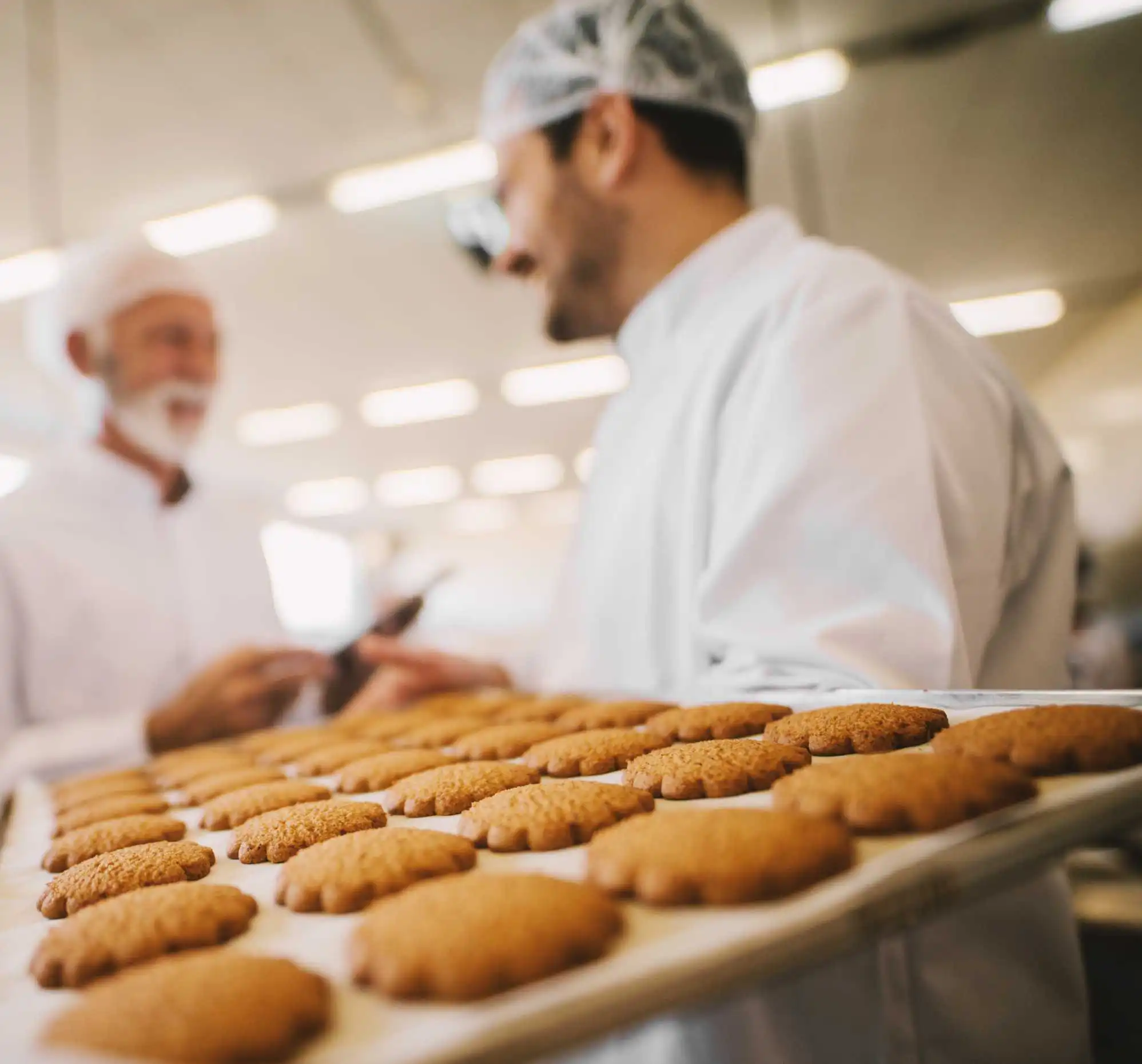White Wheat Flour Quality Assessment Made Simple
Bakers have a lot to manage. Beginning with running a business and supervising employees, frequently pivoting to changing consumer tastes, enduring a growing list of competition, and much more. Flour quality control is another critical item on the list of stresses bakeries face each day.
Traditionally, bakers have offloaded flour quality control responsibilities to their millers.
It is true – the miller has an understanding for the properties of a flour that can influence the quality of the baker’s final product. They have the training, the scientific background, and the experience in their milling processes to consistently meet the specifications that create the Certificate of Flour Acceptance (COA).
While the miller is an expert in developing flours that meet these specifications, they are not the expert in the baker’s unique process or product line. This is a key reason why today’s bakers still struggle with production challenges despite their flours meeting COA criteria before baking. For the baker to fix this, they must rethink their role in the flour quality acceptance process.
For White Wheat Flours, Quality Analysis is Less Complicated than you May Think
Rheological analysis of flour begins with introducing water to a flour sample to create a dough. After the analysis is finished, the user is presented with a data curve. But for someone like a baker, who is not typically a flour expert, what does this curve mean to the baking process?
Rather than interpreting the results of the data curve, point-by-point, consider the data curve to apply a “figure” to what you are seeing as the final product. Keep in mind that the only way to know how a batch of flour will adapt to produce a baked product is to put it through its baking process. Nevertheless, rheological analysis helps provide baseline expectations for flour performance in the baking process, helping bakers streamline quality control, reduce ingredient usage, and make informed process decisions faster.
Are All Dough Rheology Analyzers the Same?

There are specific flour rheology analyzers that provide information on dough stability by measuring the torque of a sample mixed within the instrument. This is where some rheological analyzers – like Farinograph instruments -- complete their analysis process.
However, the Mixolab 2 Universal Dough Characterizer from KPM Analytics continues its analysis well beyond mixing to simulate the baking process more completely. This is because Mixolab 2 has an internal heating mechanism that can heat the dough in the mixer, allowing it to measure protein weakening, starch gelatinization, and starch retrogradation (shelf life).
Analysis Made Simpler with Product Profiles
The Mixolab 2 CHOPIN+ Protocol is an internationally recognized standard protocol for testing white wheat flours. In a 45-minute test, the CHOPIN+ Protocol measures six quality criteria to provide a more complete outlook of flour quality: water absorption, mixing, gluten+ (protein weakening), viscosity, amylase activity, and retrogradation.
Through years of research and development and thousands of white flour tests using the CHOPIN+ Protocol, we introduced the Mixolab 2 Profiler. The Mixolab 2 Profiler allows for the classification of individual baked products based on the six quality criteria of the CHOPIN+ Protocol, thereby allowing users to screen and detect under-performing flours.
As shown in Figure 2, the Mixolab 2 Profiler is simply a different way to present the six CHOPIN+ criteria within a predefined acceptance range. If at any point the performance “drifts” outside of the ideal product profile, the flour may not be suitable to produce the ideal product, and production adjustments – or return of the flour to the miller – may be necessary. This novel application helps to significantly simplify the flour analysis process and virtually eliminate all guesswork.


Case Study: Defining an Adapted Flour Profile = Improved Knowledge of Your Product Line

In a recent LinkedIn survey, we asked our network of bakers and flour scientists whether flour deliveries, despite meeting laboratory specifications (acquired by a Farinograph product) still cause issues during the baking process.
According to the results, 96% of industrial bakers indicated that they indeed see frequent struggles in production regardless of a COA from their flour supplier. For one-fourth of the interviewed persons, these issues happened in more than one out of 10 deliveries.
This consequence illustrates a gap between theory and reality, telling us that despite all attention brought in laboratory-driven COAs, issues still exist online and/or on the finished product.
Here is where the Mixolab 2 Profiler is unique: Because the Profiler is product- and process-driven, bakers have more assurance that the results they see will align more closely with their true baking environment – not to laboratory settings.
To demonstrate the Mixolab 2 Profiler and the value of extra information provided by the CHOPIN+ Protocol, KPM Analytics worked with a pan bread manufacturer to develop a profile and analyze its effectiveness against Farinograph instruments.
The first step of the project involved analyzing 20 flour samples proven in the bakery’s production process to produce their ideal bread product. From this data, the user developed their Product Profile with the Mixolab 2 Profiler. Figure 4 illustrates their profile based on the six criteria of the CHOPIN+ protocol.

Now with their profile created, the pan bread manufacturer analyzed 21 new incoming flour samples with the Mixolab 2 Profiler. The results from each sample are show in Figure 4.
Out of the 21 samples, 12 were found to be well-performing on the production line. These 12 samples matched the matched 100% within the Mixolab 2 Profile generated from well-adapted flours.
Meanwhile, six other flour specifications gave issues on the process line. When tested by Mixolab 2, these flours were mostly “OUT of specification.” Additionally, some of these faulty flours could not have been identified with the Farinograph analysis alone based on the lack of additional information the instrument provides compared to Mixolab 2. And, because flour is a dynamic ingredient, there were three flours that performed well on the process whereas they had some parameters identified as “OUT” by the Mixolab 2 Profiler (shown in the “Area of Uncertainty” in Figure 5).

There were important findings from this study:
- Water absorption alone is not a reliable indicator for how a particular flour will perform on the process line. As shown in this study, all flours met water absorption capacity criteria, yet not all produced a desired product.
- Additionally, mixing properties, on their own, are also not a reliable measure for flour quality. In this study, out of the two flours that failed mixing criteria of the Mixolab 2 profile (1837 and 1547), one still produced a good final product while the other did not.
Clearly, water absorption and mixing – the two parameters controlled by Farinograph instruments -- is not providing complete information on everything that matters to flour quality for your unique baking process. Because Mixolab 2 provides more complete analysis, the baker can be more confident in their process decisions.
Get the complete story on flour quality now!
With the help of the Mixolab 2 Profiler, managing the quality of incoming white wheat flour can be done simply and without requiring operator interpretation.

Related Articles & Insights

Bakers Must Take Control of Flour Quality (Snack Food & Wholesale Bakery)

In-Process Bakery Analysis: Why Mixolab 2 is the Perfect Tool to Reduce Waste












